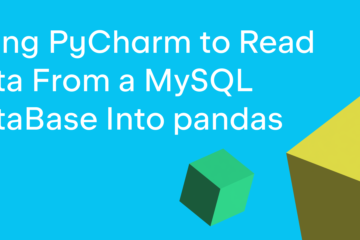The first minor release for PyCharm 2022.2 is available with the following fixes:
We’ve enabled the new UI for setting up an interpreter via the Show all popup menu in the Python Interpreter popup window. [PY-53057]Docker: Run options that were set up via a run/debug configuration are no longer ignored if other run options were set up during Docker interpreter configuration. [PY-53638], [PY-53116]Docker: The console and debugger now connect when using a Docker interpreter on Linux. [PY-55338]Docker Compose: Project interpreters configured with previous PyCharm versions now start as expected. [PY-55423]Docker Compose: Port configuration now works for the Docker Compose interpreter. [PY-54302]Docker Compose: Running Django with the Docker Compose interpreter no longer leads to an HTTP error. [PY-55394]PyCharm now recognizes non-default Flask app names and sets up the Flask run configuration accordingly. [PY-55347]Testing: Behave run configurations can run individual scenarios instead of running all available files from the target directory. [PY-55434]The Emulate terminal in output console option no longer leads to unexpected indentations in the console or debugger. [PY-55322]Debugger: The Python console now displays text containing ANSI color sequences correctly. [PY-54599]Debugger: PyCharm no longer produces an error when debugging code containing non-ASCII encoding. [PY-55369]Debugger: Debugging a multiprocessing script no longer leads to an IDE exception error. [PY-55104]
You can download the new version from our website, update directly from the IDE, update via the free Toolbox App, or use snaps for Ubuntu.
The major changes in 2022.2
With PyCharm 2022.2, we introduced an important change to how PyCharm works with remote targets such as the WSL, SSH, and Docker. This change enabled users to create virtual environments on the WSL and SSH directly in PyCharm. It also equipped PyCharm with a new unified wizard for managing remote interpreters, enhancements that were not possible with the old implementation.
Initially, PyCharm focused on local development. As PyCharm matured, it started to cover new approaches and technologies. At first, support was added for the basic scenarios of development with the code deployed on SSH servers. Then, Docker integration was implemented and WSL followed. While different technologies were supported, the codebase responsible for code execution remained the same in its essence, leaving several corner cases and individual features unsupported.
To implement this new functionality, we had to refactor a significant portion of our huge code base. We did internal dogfooding of the updated code for several months before we added the functionality to the Early Access Program builds for the 2022.1 release and then for the 2022.2 release. Unfortunately, there were still some regressions that we didn’t catch, and they ended up appearing in PyCharm 2022.2. This minor release brings fixes that allow you to work more efficiently with remote interpreters again.
What’s next
Our future plans include providing the ability to configure Conda interpreters in WSL and on SSH servers and adding support for managing Python interpreters configured in Docker, which runs on an SSH server.
For now, as we release PyCharm 2022.2.1 we are already working on the next minor iteration and the following issues are currently being prioritized:
https://youtrack.jetbrains.com/issue/PY-55294
https://youtrack.jetbrains.com/issue/PY-52925https://youtrack.jetbrains.com/issue/PY-55003https://youtrack.jetbrains.com/issue/PY-55396https://youtrack.jetbrains.com/issue/PY-55462https://youtrack.jetbrains.com/issue/PY-55451https://youtrack.jetbrains.com/issue/PY-54500https://youtrack.jetbrains.com/issue/PY-52610
If you notice any issues after upgrading to 2022.2.1, please contact our support team or create a ticket in our issue tracker.


